Current Issues in Obtaining NIEs: Chaos and Confusion for Foreigners
What is the NIE?
The NIE (Foreigner Identification Number) is a unique, personal, and mandatory identification number for all foreigners in Spain who, due to their economic, professional, or social interests, interact with the Spanish administration. It is issued through the Spanish foreign representation or in the National Police Commissioner’s Offices throughout the country, which have exclusive competencies for this purpose.
What is the NIE used for?
The NIE is crucial for foreign individuals to carry out various legal acts or transactions in Spain, including accepting or renouncing inheritances, making or receiving donations, buying or selling real estate or vehicles, establishing companies, paying taxes, and even dealing with local administrations when applying for a building permit for renovations in their vacation home by the beach.
It serves as proof, to the best of my knowledge, of a certain level of equal treatment among individuals, regardless of their origin or nationality. A guarantee that is, therefore, constitutional.
How to obtain the NIE?
Despite the seemingly straightforward procedure, obtaining the NIE is fraught with obstacles and complexity, compelling foreigners to hire professionals for this process:
- Collecting all the documentation (powers, photographs, forms).
- Requesting an appointment.
- Appearing in person or through a representative.
Getting an appointment at the National Police Commissioner’s Office for the NIE has never been an easy task, as it requires scheduling online appointments that are often scarce.
In provinces like Alicante, even after obtaining a notarized power of attorney in Spanish and the official language of the country where the power of attorney was signed, applicants were forced to go to a Spanish sworn translator recognized by the Ministry of Foreign Affairs to translate the document again, incurring unnecessary expenses for the applicant who needed the NIE.
Obtaining the NIE is an excessively formal and in-person procedure that has not adapted well to digitization.
Evolution of NIE Obtaining Procedures
In 2011, RD 557/2011 was published, approving the Regulation of Organic Law 4/2000 on the rights and freedoms of foreigners in Spain and their social integration. Article 206, paragraph 2, regulated the so-called Foreigner Identification Number:
“2. The personal number will be the identifier of the foreigner, which must appear on all documents issued or processed, as well as in the annotations made in their passport or similar document, except for visas.”
In paragraph 3, it explains how to obtain it:
“3. … Foreigners who interact with Spain due to their economic, professional, or social interests may personally request the NIE from the General Directorate of Police and the Civil Guard, directly or through the Foreigners Offices or Police Commissioner’s Offices. In the case that the foreigner is not in Spanish territory at the time of the request, they will request the assignment of NIE from the General Directorate of Immigration and Borders, through the Consular Offices of Spain abroad.”
It seems that the legislator forgot about cases of legal or voluntary representation of these foreigners when drafting this Royal Decree. According to this article, lawyers or tax advisors could not request NIEs for foreign citizens based on notarized powers.
This was partially changed with Instruction 3/12 of April 13, 2012, by the competent general commissioner, communicated to police headquarters and competent offices and authorities, indicating that the request for NIE should be allowed by foreign citizens through representatives.
Therefore, since 2012, obtaining the NIE through a representative, either by power of attorney issued abroad or in Spain, was accepted. The options for obtaining the NIE were as follows:
If the foreigner traveled to Spain:
-
- Personally by the foreigner in Spain by going to the Police Commissioner’s Office.
-
- Through a representative holding sufficient power of attorney issued by a Spanish Notary that explicitly includes the authority to request the NIE.
If the foreigner did not travel to Spain:
-
- Personally by the foreigner not in Spain through the Consular Offices of their country.
- Through a representative in Spain holding sufficient power of attorney issued by the Consulate in the country of origin explicitly granting the authority to request the NIE.
- Through a representative in Spain holding sufficient power of attorney issued by a Notary in the country of origin explicitly granting the authority to request the NIE. (!)
In other words, from 2012 to 2023, in Spain, one could go to the National Police Commissioner’s Office to obtain NIEs. Many foreign citizens could go to foreign notaries, grant notarized powers of attorney (in Spanish and the official language of that country, later apostilled) to Spanish lawyers or tax advisors. These representatives could then appear before the commissioner’s office, request and collect the NIE, and carry out the corresponding legal, tax, and administrative procedures, streamlining the entire process, to the benefit of clients who did not have to worry about any procedures.
What happened in 2023, and why has obtaining NIEs become more complicated?
For reasons unknown even to legal professionals, on October 13, 2023, an OFFICE communication was issued by the Provincial Police Commissioner of Alicante, deciding to CEASE THE ISSUANCE of NIE certificates based on powers granted abroad from November 1, 2023.
[Image: Official Communication from the Police Commissioner Regarding NIE in Spain]
Currently, in provinces like ALICANTE AND MURCIA, NIEs are NO LONGER ISSUED if the interested foreign citizen does not appear in person or by virtue of notarial powers granted before a Spanish Notary.
This complicates, as we will see below, procedures for foreigners and seriously harms the competitiveness of lawyers and advisors practicing in these provinces.
Meanwhile, in other provinces and even on the Ministry of the Interior’s website, it is still stated that applications can be made personally by the interested party or through a representative.
An example of the consequences of not allowing representation through powers granted abroad.
Consider a common scenario in our daily practice,
An inheritance with 7 heirs living in different countries. To inherit assets in Spain, they need an NIE and have two options for obtaining it or authorizing a law firm for its obtaining (i) come to Spain (ii) go to the consular office. As we have indicated, the possibility of granting power to a foreign notary is no longer allowed.
In the mentioned case, the difficulty is maximum, and the cost is higher. While the foreign notary is in each city, the consular representation of Spain is in very large cities or capitals of states. It can lead to the perverse case that in Australia, with only 3 consulates (Canberra, Sydney, and Melbourne), a citizen of Perth has to travel in their vehicle for 39 hours or fly for more than 4 hours when they have a notary two blocks from their home. This, coupled with the fact that heirs often only want to carry out the inheritance allocation and the sale of the property, means that they do not want or cannot come to Spain, making it unattractive to carry out legal transactions in Spain.
An Australian heir from Perth will be forced to come to Spain or travel more than 39 hours by car to a Consular Office, even when there is likely a not
Conclusion
From our point of view, this unilateral decision contradicts equality, free movement, and reciprocity between Spanish citizens and foreigners, not only from third states but also from the European Union itself. Currently in Spain, notarial powers granted abroad (even in EU countries) are not valid for requesting, obtaining, and collecting NIEs, but they are valid for buying a property, for example.
Therefore, this decision, ultimately, once again affects, in the opinion of this attorney, the rights and freedoms of citizens, reducing legal certainty and proper diligence in the functioning of administrations and administrators. This necessitates the joint efforts of professionals in this sector and the dissemination and submission of various writings, complaints, and appeals aimed at convincing the competent administration to reverse the decision and continue granting NIEs with notarial powers signed abroad.
Article drafted by Fabián Iwan Kesseli Nicolas, Lawyer at Blau Abogados.

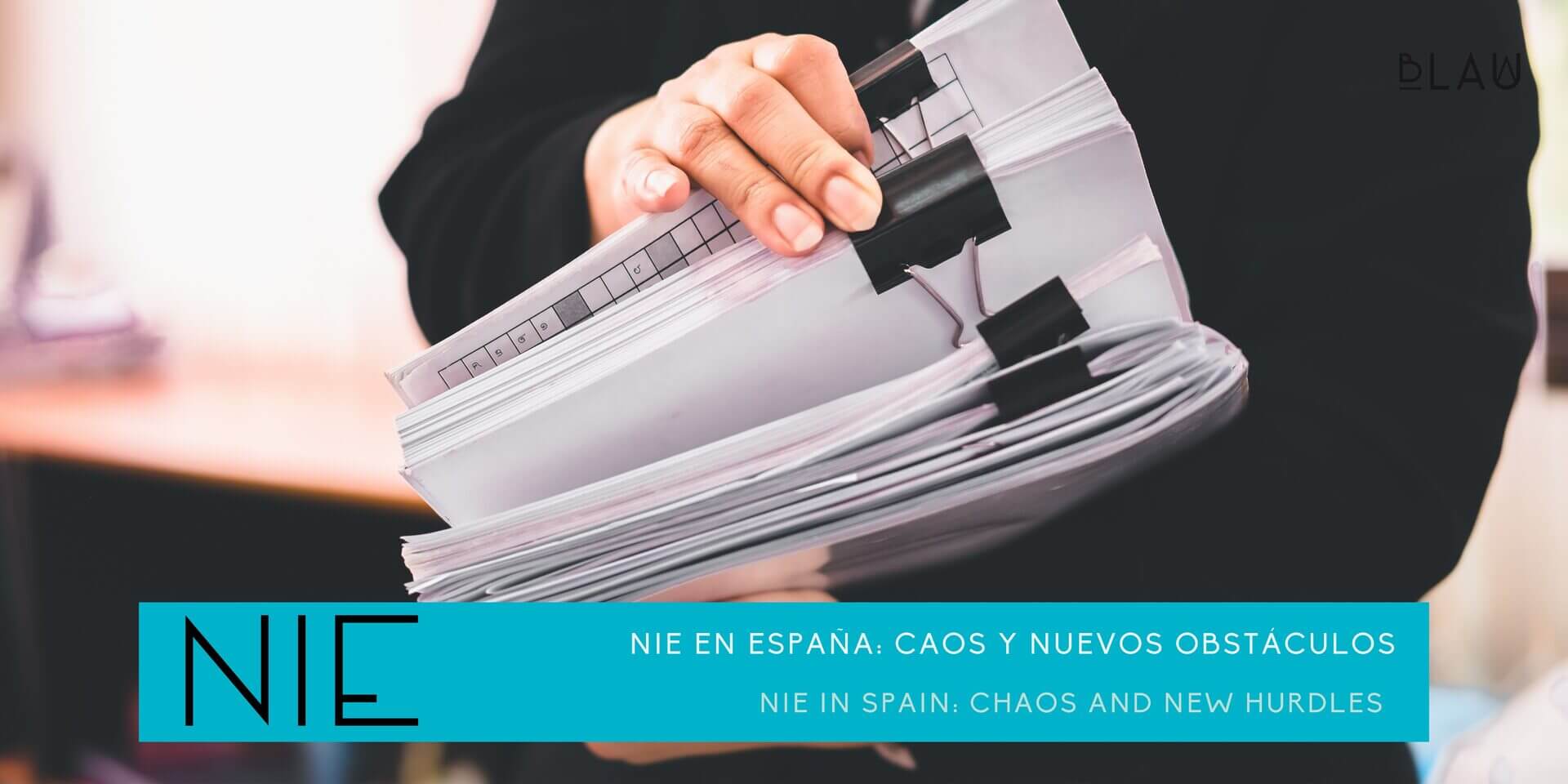
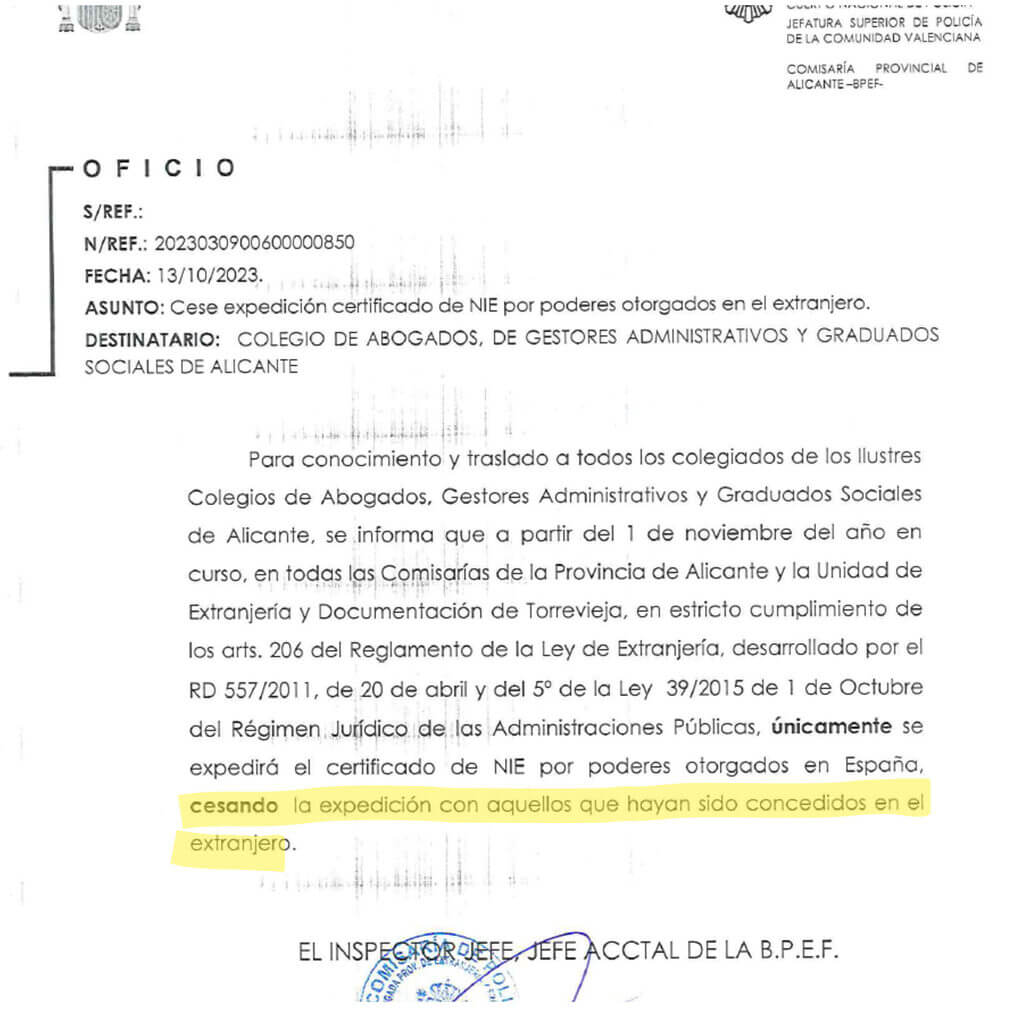
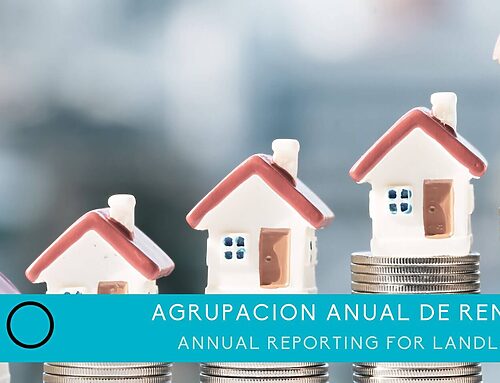
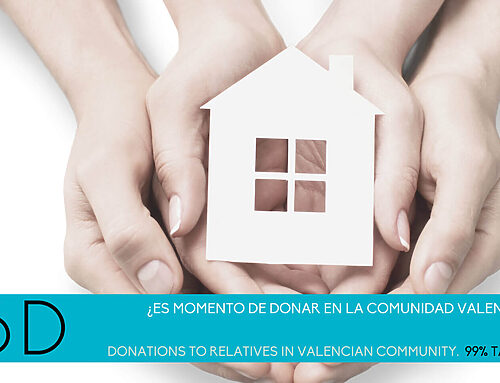
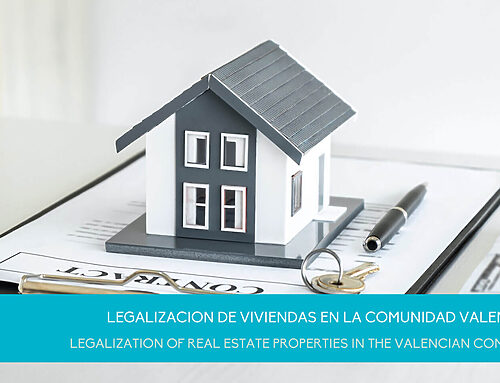
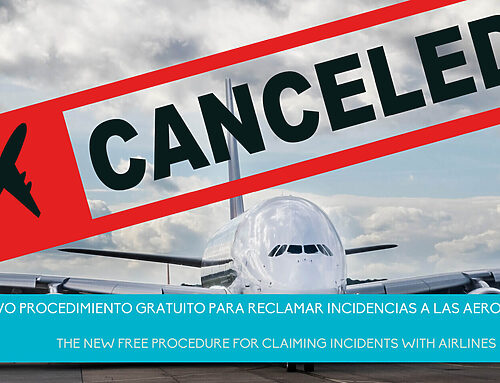

Leave A Comment